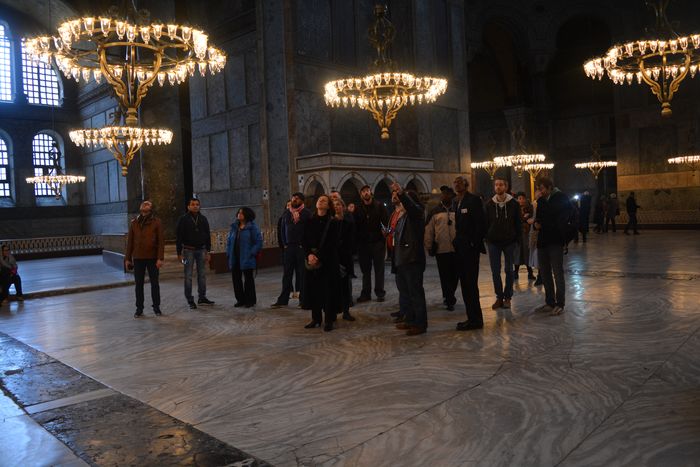Apologia of St John Damascene Against those who Decry Holy Images Part I
With the ever-present conviction of my own unworthiness, I ought to have kept silence and confessed my shortcomings before God, but all things are good at the right time. I see the Church which God founded on the Apostles and Prophets, its corner-stone being Christ His Son, tossed on an angry sea, beaten by rushing waves, shaken and troubled by the assaults of evil spirits. I see rents in the seamless robe of Christ, which impious men have sought to part asunder, and His body cut into pieces, that is, the word of God and the ancient tradition of the Church.
Recognising the power
Therefore I have judged it unreasonable to keep silence and to hold my tongue, bearing in mind the Scripture warning:–“If thou withdrawest thyself, my soul shall not delight in thee,” (Heb. 10.38) and “If thou seest the sword coming and dost not warn thy brother, I shall require his blood at thy hand.” (cf. Ez. 33.8) Fear, then, compelled me to speak; the truth was stronger than the majesty of kings. “I bore testimony to Thee before kings,” I heard the royal David saying, “and I was not ashamed.” (Ps. 119.46) No, I was the more incited to speak. The King’s command is all powerful over his subjects. For few men have hitherto been found who, whilst recognising the power of the earthly king to come from above, have resisted his unlawful demands.
In the first place, grasping as a kind of pillar, or foundation, the teaching of the Church, which is our salvation, I have opened out its meaning, giving, as it were, the reins to a well caparisoned charger. For I look upon it as a great calamity that the Church, adorned with her great privileges and the holiest examples of saints in the past, should go back to the first rudiments, and fear where there is no fear.












